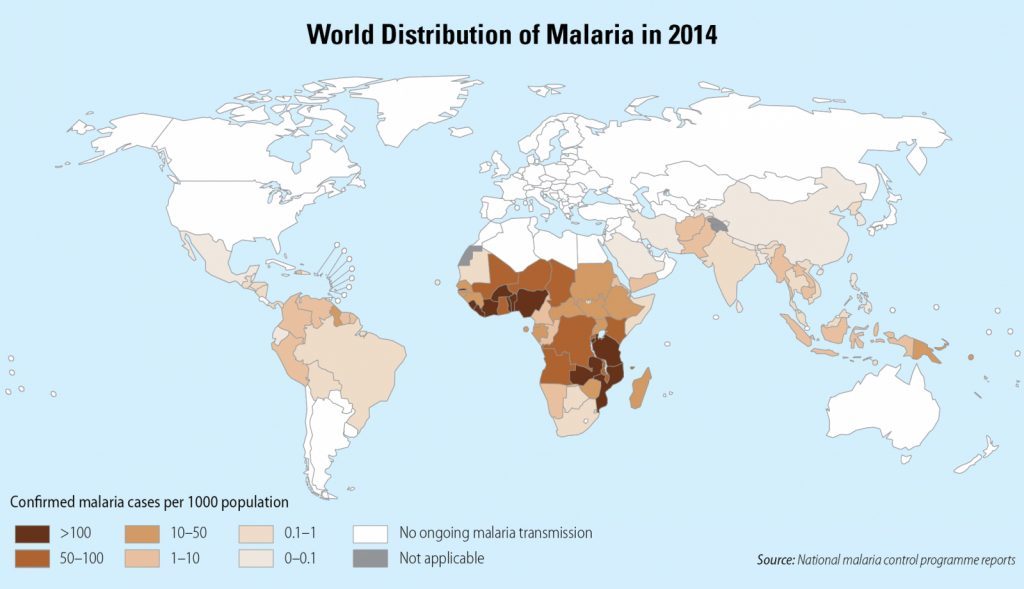
Malaria results in around 1,400 people needing treatment in the UK each year, after contracting the infection abroad.
This is the second highest figure among developed countries, with France reporting the highest numbers of more than 2,000 malaria cases per year.
While medical and technological advances have meant our understanding has improved greatly since the first discovery of malaria parasites back in 1880, millions of pounds are invested in medical research each year and the associated risks from mosquito bites continue to be prevalent.
Vigilance and education are essential for individuals and organisations in mitigating potential malaria infection.
International SOS data shows that malaria now accounts for an increasing proportion of offshore medical cases – from 13% in 2014 to 40% in 2016.
However, there has been an increase in cases that can be managed offshore, from 65% in 2014 to 90% in 2016.
Despite being a preventable disease, malaria continues to prompt thousands of calls to the International SOS Assistance Centre every year.
The health consequences of the disease can be particularly serious, resulting in high fevers, chills and sickness and can, in some instances, cause death.
Most common in sub-Saharan Africa, oil & gas companies need to be aware of the risks and take appropriate measures to educate and protect their workforce.
While malaria has been eliminated in some regions, such as Sri Lanka, other areas, such as several provinces in South Africa, have seen the emergence of malaria in recent years.
The transition of oil workers from malaria free installations at sea to shore side endemic areas is a particularly challenging situation and requires a logistically and medically viable plan in order to mitigate the risks.
Only 22% of organisations provide staff with pre-travel healthcare programmes and data revealed a mere 36% of travel risk professionals were found to protect themselves against the toxic parasites.
Even those who are educated on the health risks and consequen-ces are sometimes failing to take the appropriate pre-travel precautions.
By educating employees prior to travel, providing travellers with preventive measures and monitoring outbreaks, companies can reduce the risk of malaria infection.
With appropriate programmes in place, organisations can also manage medical cases which occur as a result of malaria on board offshore platforms or shipping vessels, reducing the need for crew to return onshore for treatment.
New digital consultation facilities mean offshore workers can speak to medical specialists from anywhere in the world via secure web link, potentially eliminating the need to attend appointments in person, saving valuable time and resources.
The emergence of drug and insecticide resistance is a continuing reminder that the progress in recent times could quickly be reversed, in turn potentially increasing the threat levels for some geographical areas.
There is no room to become complacent when dealing with malaria; prevention is always better than cure.
Dr Michael Braida is regional medical director at International SOS